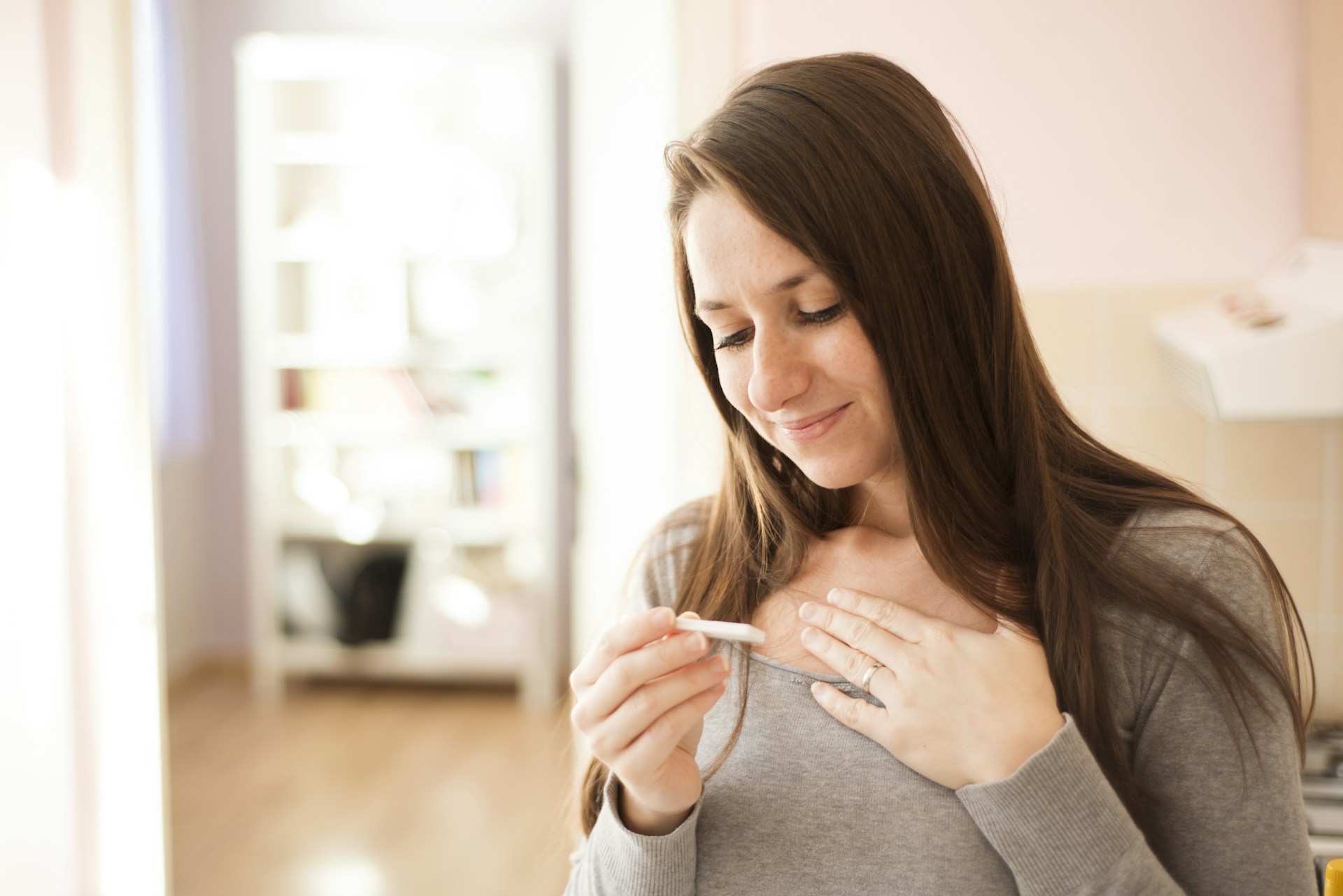Ten years ago I was diagnosed with unexplained fertility — but my situation was far from "unexplained." Instead, I learned of a condition that impacts many women, and became fascinated by the challenges women and doctors face not only with endometriosis but also women’s health as a whole.

Ten years ago I was diagnosed with unexplained fertility — but my situation was far from "unexplained." Instead, I learned of a condition that impacts many women, and became fascinated by the challenges women and doctors face not only with endometriosis but also women’s health as a whole.
Ten years ago I was diagnosed with unexplained fertility — but my situation was far from "unexplained." Instead, I learned of a condition that impacts many women, and became fascinated by the challenges women and doctors face not only with endometriosis, but also women’s health as a whole.
Here you will learn my story, the foundations of endometriosis, and tools to support you in your journey.
My story How common is endometriosis? Diagnosing How to manage
My Story
In October 2010, I had just returned from my honeymoon and happened to have a routine OB GYN appointment. Perhaps because I spoke about my fabulous honeymoon involving a trip to Greece, she asked me a lot of questions, including whether I was trying to conceive, and she drew several vials of blood. The next day, I was told I needed to see a fertility doctor.
Yes, this sounds fast — and it was.
The next four years felt like spinning on a hamster wheel navigating the space of infertility. I was quickly told my condition was unexplained and that my 35 year old body was like that of a 45 year old.
>>RELATED: What to Know If You're Trying to Conceive After 35
Over the years, protocols changed, yet the results unchanged: unexplained infertility, not pregnant. Having spent my entire career in healthcare, I knew there was an answer. Either my doctors were not trying hard enough, or science has not caught up to truly understanding the intricacies of my body.
About three years in and at my tenth doctor along the journey, I was told, “I think you have endometriosis, but it's silent, meaning you don't have symptoms. The only way to diagnose it is to get surgery.”
I evaluated the previous three years — thousands of dollars that resulted in zero results. I weighed the options: pay a fraction of the cost of an IVF cycle to potentially get a diagnosis and finally have answers, or pay a lot of money for another IVF and get the same result: not pregnant.
I chose the surgery, and it confirmed I had late stage endometriosis. I was able to get pregnant after the surgery with an immune protocol IVF cycle, and now have a son, but the journey and my experience in healthcare made me incredibly curious about why this took so long to sort out.
How common is endometriosis?
Before speaking to managing endometriosis, it is important to put some important points into context.
Endometriosis impacts at least 1 in 10 women. I say at least because researchers focused on this disease project that many more women have it. The only way to diagnose endometriosis with certainty is via a laparoscopic surgery. With women justifiably not lining up for exploratory surgery, insurance companies not covering a surgery “just because,” and doctors not having capacity to conduct such a procedure on every woman, you can see why it is quite plausible the numbers are underestimated.
How long does endometriosis take to diagnose?
Depending on which research paper you read, endometriosis takes seven to eleven years to diagnose. Why is this the case? The answer is multifactorial.
A complex, not-yet-understood condition
Researchers still don’t understand the cause of endometriosis. Without understanding the cause, one can imagine how difficult it is to find the optimal treatment.
Limited funding for research
The CEO of Celmatix presented at the tenth annual Endometriosis Foundation of America conference the following figures on funding. When comparing the cost disease burden relative to NIH funding, for diabetes, it was ~350:1 and for endometriosis, it was ~3000:1. What this means is research funding for endometriosis is a drop in the bucket relative to its significant economic impact.
Few experts
I interviewed world renowned endometriosis surgeon, Dr. Tamer Seckin, who shared that there are only about 100-200 surgeons in the world who truly understand endometriosis. Experts validates this at a recent endometriosis conference.
OB GYNs attending the 2019 Endometriosis Summit shared how little training they receive on endometriosis.
Complex surgery
Given the complexity in diagnosis and treatment, an expert team of surgeons should be on the ready.
Endometriosis can grow around several organs, including your bowels, and OB GYNs are not trained experts on procedures outside of your reproductive organs.
Given it is only during laparoscopy that a surgeon fully grasps where the endometriosis is, in an ideal world, the sub-specialists need to be on standby.
Add to that, imagine you are in a small town — how do you access so many experts in one hospital?
>>RELATED: Listen to my interview with patient advocate Melissa Boudreau, who was in this situation and how she navigated it.)
How to manage endometriosis
First, there is not a clear cut answer, and if one is promised to you, that is a sign to seek another opinion.
In the community, I have seen patients range from hardly any symptoms to being crippled by pain regardless of what has been tried and then anything in between.
Based on what I’ve seen in the community and through experts I have interviewed, here are key tips to navigate endometriosis.
Take good notes on you
Don’t underestimate your expertise. Endometriosis experts agree the women dealing with this day-to-day are the experts. You are the one suffering, reaching out to your community, trying anything and everything to feel better. Track it. Share it with your doctor.
Prepare for your doctor appointments
It's not only important to notate key themes you see as you track your body and health, but to prepare for questions to ask. If you are about to or just have undergone laparoscopic surgery, as an example, this is an incredible post with a comprehensive list of questions you should ask categorized by where you are in your journey.
Optimize your diet
I have seen incredible variation on the right diet for endometriosis patients. The most common are to eliminate gluten and dairy. Outside of that, I see contradictions around soy and red meat, as examples. The key seems to be to avoid high estrogenic foods. Thus, consult an expert, ideally a nutritionist who specializes in endometriosis.
>>MORE: Food and Fertility: What's the Link?
Take the right supplements
Supplements are complex to navigate. My interview with Suzanne Munson sheds light on how to pick the right supplements for you. Additionally, Dr Lara Briden shared on our recent episode and in her recent blog post about her success in using iodine for endometriosis patients.
Take note of her warnings about dosage. Please consult a professional before creating your own supplement cocktail, especially when it comes to iodine.
>>MORE: What Supplements Should I Take When Trying to Conceive?
Try castor oil packs
Nicole Kruck speaks about the benefits of castor oil packs. Many endometriosis patients have found them to help with pain.
Find a community
Each of us needs something different to support us in our health journey. However, you can’t underestimate the power of community. Whether you observe from afar or share and comment, find a support network. It will help you feel less alone, and you might learn a few tips that would apply to your situation.
Pause before you act on something you learn on social media
Yes, when something works, we want to scream from the rooftop and help our fellow women. However, our medical histories don’t come with our social media posts, which means you don’t have full context for why something worked. Take it as a tip to consider, talk to your doctor, and then decide if it is best for you.
Take it one day at a time
Your journey will vary by minute, hour, day, and year. On those hard days you may skip tracking or want to cheat on your diet or want to crawl under the covers. It is okay. When feeling overwhelmed, focus on today or this specific moment and find support.
Managing endometriosis: hope for the future
I’ve interviewed and spoken with an incredible amount of companies and experts. I’m heartened by the incredible efforts being made to transform women’s health, including endometriosis.
Resources
- Fempower Health page dedicated to endometriosis
- Interview with Dr Seckin | Endometriosis: Why Women are Dismissed and What They Should Do
- Interview with Melissa Boudreau | Endometriosis: Lessons from a Patient and Advocate
- Phendo app developed by Columbia University and designed to track symptoms, manage endometriosis, and aid in their research efforts
- Questions to ask your doctor about laparoscopic surgery
- Nancy’s Nook, a community for those who have endometriosis
- Endometriosis conferences Endometriosis Foundation of America and Endometriosis Summit
- ReceptivaDx, a diagnostic tool targeted for those with unexplained infertility and recurrent pregnancy loss, which may indicate endometriosis
About the author

Sources
About the Oova Blog:
Our content is developed with a commitment to high editorial standards and reliability. We prioritize referencing reputable sources and sharing where our insights come from. The Oova Blog is intended for informational purposes only and is never a substitute for professional medical advice. Always consult a healthcare provider before making any health decisions.



